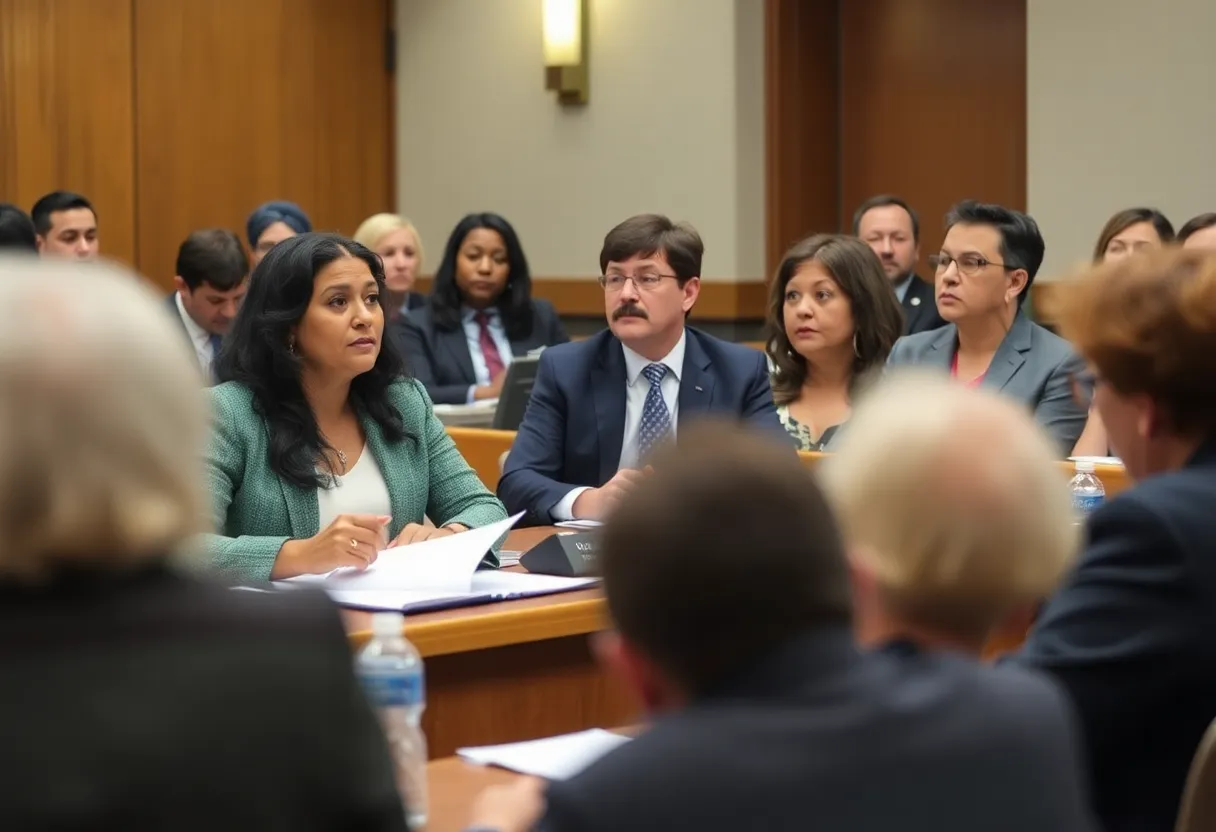News Summary
In a significant move for reproductive rights, the San Antonio City Council has allocated $100,000 to its Reproductive Justice Fund in a tight 6-5 vote. This funding aims to support organizations providing essential reproductive health services, particularly crucial in light of Texas’s restrictive abortion laws. The initiative, led by Councilwoman Melissa Cabello Havrda, targets women needing assistance to access abortion services in other states. However, legal challenges arise as the Texas Attorney General contests the funding, raising debates about taxpayer money’s role in abortion-related initiatives.
San Antonio City Council Takes Bold Step for Reproductive Rights
The vibrant city of San Antonio is making headlines with a recent decision by its City Council that could have significant implications for reproductive rights in Texas. In a close vote of 6-5, the council has allocated $100,000 to the city’s Reproductive Justice Fund, a move aimed at supporting organizations that provide essential reproductive health services. This funding is particularly important considering the hurdles many women face in accessing these services due to Texas’s restrictive abortion laws.
A Response to Changing Legal Landscapes
The decision comes in the wake of the U.S. Supreme Court’s ruling that overturned Roe v. Wade, ushering in new challenges to reproductive rights across the country. The allocation is fueled by growing concerns surrounding access to healthcare and support for women who may need to travel to other states for legal abortions. With the landscape shifting dramatically, concern and support for reproductive justice have never been more pressing in the Lone Star State.
Who Will Benefit from the Fund?
The funding initiative, led by Councilwoman Melissa Cabello Havrda, serves to bolster the existing Reproductive Justice Fund. This new allocation is particularly aimed at women seeking assistance in traveling to states where abortion services are legal and more accessible. Only ten organizations that originally applied for this funding will be eligible for the new allocation, but four have already expressed a keen interest in providing travel assistance. This marks a significant step towards making reproductive healthcare more reachable for those affected by Texas’s stringent policies.
Challenges Ahead
However, the road ahead may be fraught with challenges. Legal troubles are brewing, as Texas Attorney General Ken Paxton has filed a lawsuit against the city of San Antonio. He alleges that the funding infringes upon state law by promoting what he calls “abortion tourism” and claims that there is no clear public benefit from the fund. This lawsuit highlights the conflict between local and state attitudes toward reproductive rights, and the stakes couldn’t be higher.
Opponents of the funding, including some council members, have raised concerns regarding the implications of using taxpayer money in support of abortion-related initiatives. They fear the potential misuse of public funds in a highly contentious political climate. This debate continues to rage on in numerous councils and legislative sessions across the state.
What’s Next for the Fund?
In light of these developments, San Antonio city officials anticipate presenting new contracts for approval by the end of June. These contracts are being carefully crafted to ensure compliance with both local and state laws, reflecting the ongoing tension between reproductive rights advocacy and legal constraints. As these discussions unfold, it remains to be seen how such measures will be implemented and whether they will withstand legal scrutiny.
Similar Battles in Texas
San Antonio is not alone in this struggle. The city of Austin is facing similar lawsuits regarding funding for out-of-state abortions. The increased legislative scrutiny is spurring lawmakers to consider bills that would explicitly ban government entities from using taxpayer resources for abortion-related logistical support. This environment underscores the urgent and passionate debates surrounding reproductive rights in the state.
The Bigger Picture
The San Antonio City Council’s decision is more than just a funding measure; it’s a reflection of the ongoing struggle for reproductive justice in a rapidly changing legal landscape. As cities grapple with their role in supporting or restricting access to healthcare, the voices of residents and advocates will continue to play a crucial role in shaping the future. The outcome of this funding and the looming legal battles is yet to be determined, but one thing is clear: the conversation around reproductive rights in Texas is far from over.
Deeper Dive: News & Info About This Topic
HERE Resources
San Antonio City Council Faces Legal Battle Over Abortion Fund
San Antonio City Council Takes Action on Abortion Funding
San Antonio City Council Approves Reproductive Justice Fund
Major Ruling in Alabama: Doctors Can’t Be Penalized for Abortion Referrals
San Antonio City Council Weighs Abortion Travel Funding
Gina Ortiz Jones Secures Major Endorsement in Mayoral Race
Biden Declares Equal Rights Amendment as Ratified
Bob Ferguson Becomes Governor, Implements Key Reforms
Additional Resources
- KSAT: San Antonio City Council Adds $100K into Controversial Fund
- Wikipedia: Reproductive Rights
- Courthouse News: Texas AG Sues San Antonio over Funding
- Google Search: San Antonio Reproductive Justice
- Express News: Ken Paxton Files Suit Against San Antonio
- Google Scholar: Reproductive Justice Texas
- Fox San Antonio: Ken Paxton Sues San Antonio Over $100K Fund
- Encyclopedia Britannica: Reproductive Justice
- KENS5: Ken Paxton Sues San Antonio for Abortion Travel
- Google News: Texas Abortion Lawsuit







